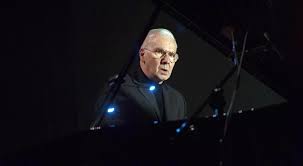Death of a noted improviser, 84
RIPThe death has been announced in Warsaw of Szábolcs Esztényi, a Hungarian-born pianist and composer who influenced generations of students as piano improvisation teacher at the Fryderyk Chopin Secondary School of Music in Warsaw and the Academies of Music in Warsaw and Łódź.
Which western concervatoire has a dedicated professor of improvisation?






Comments